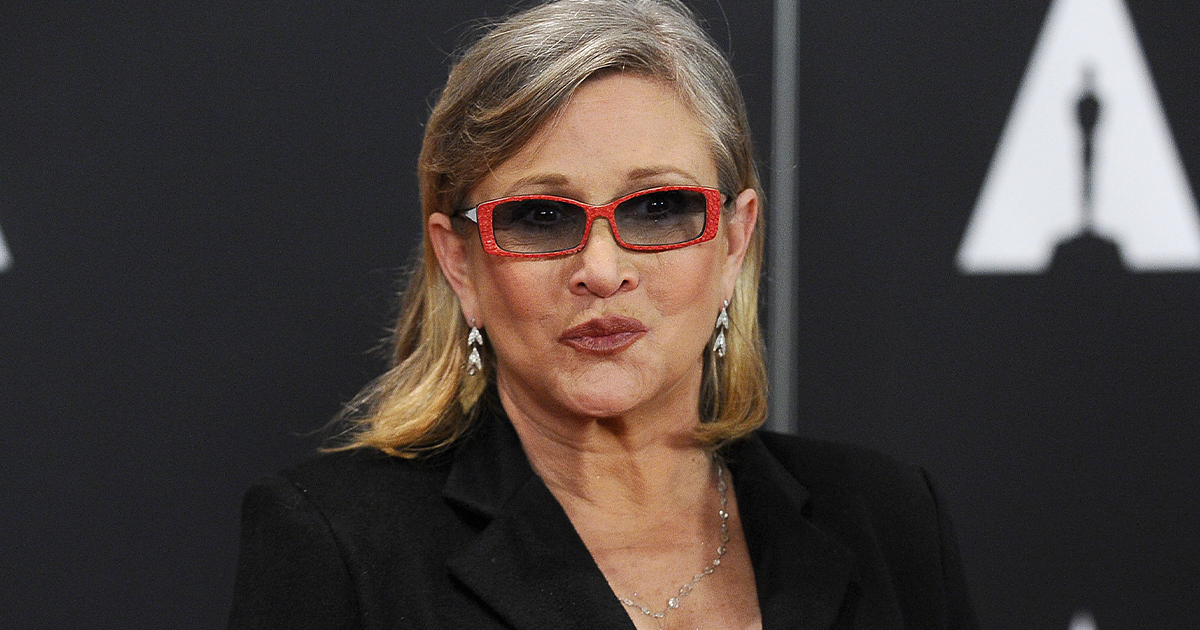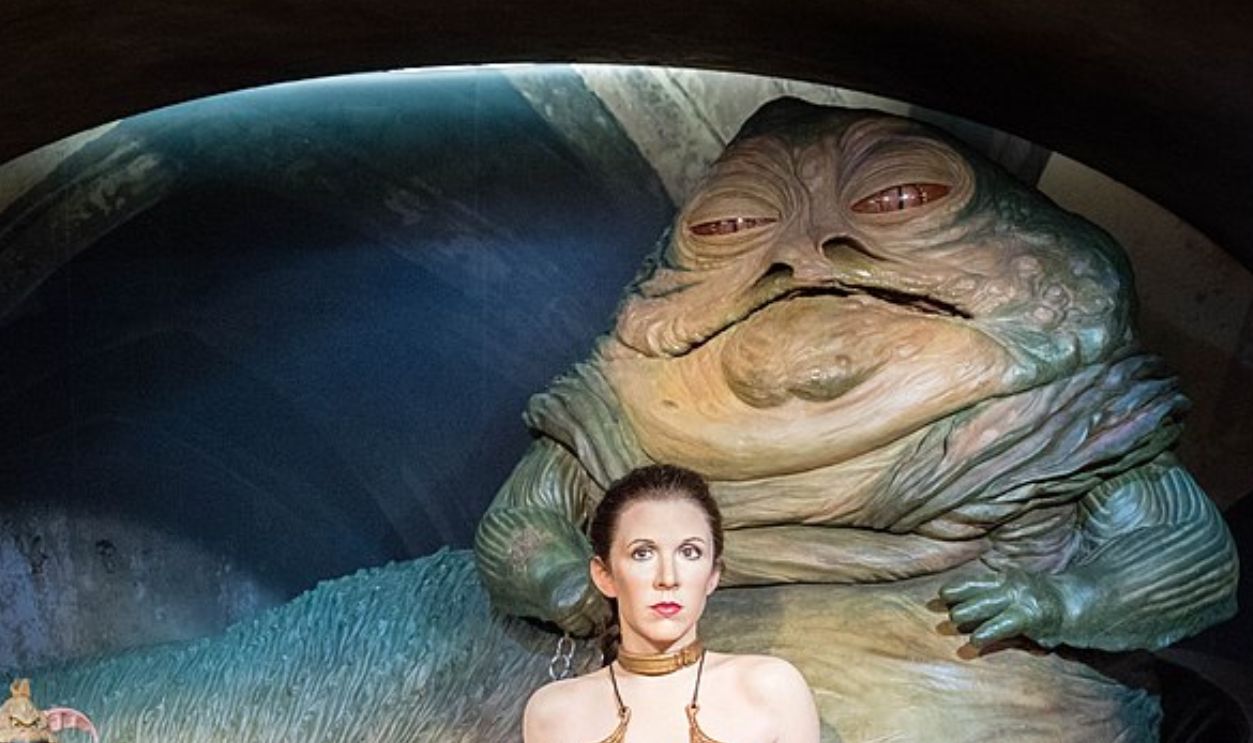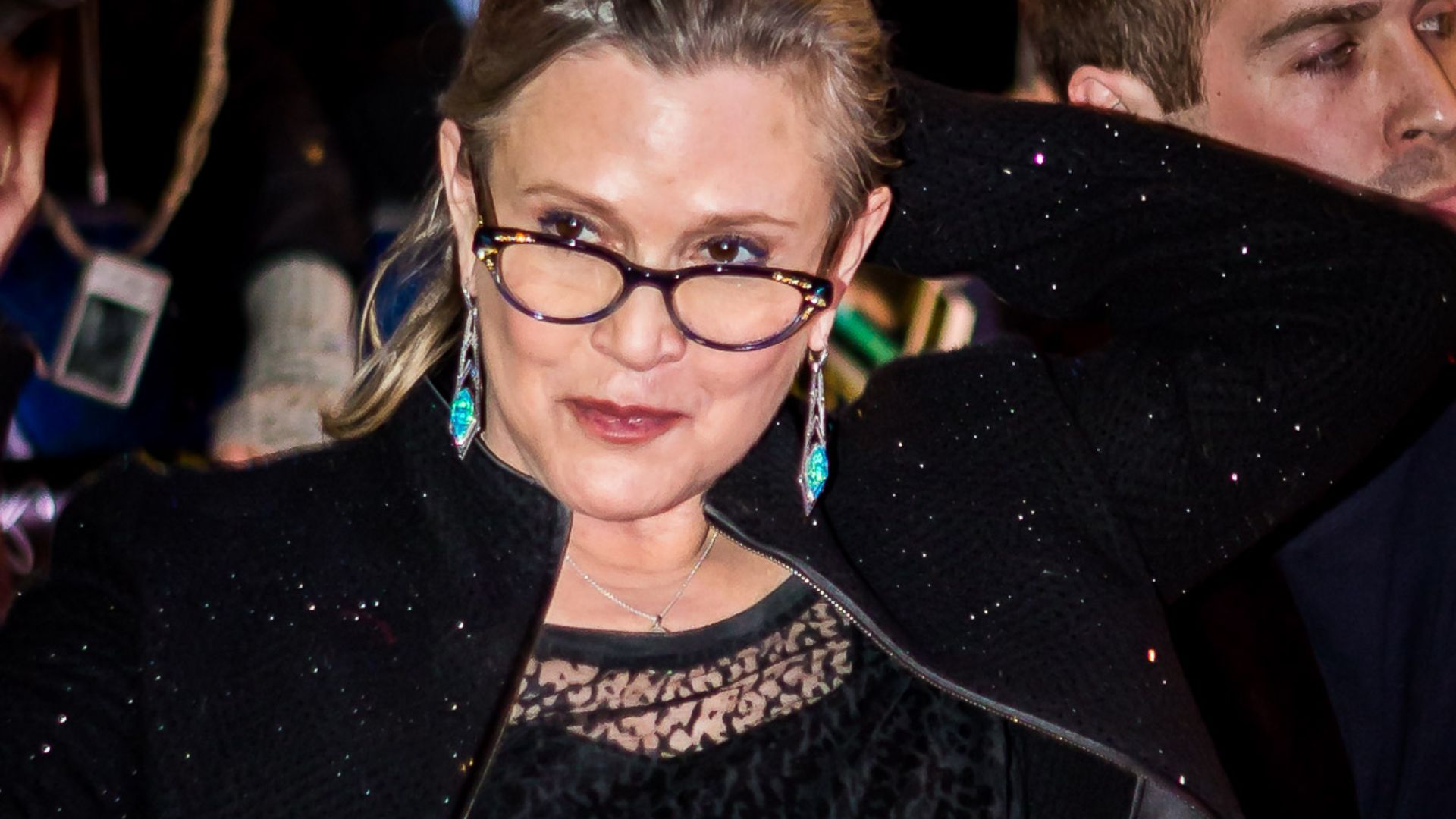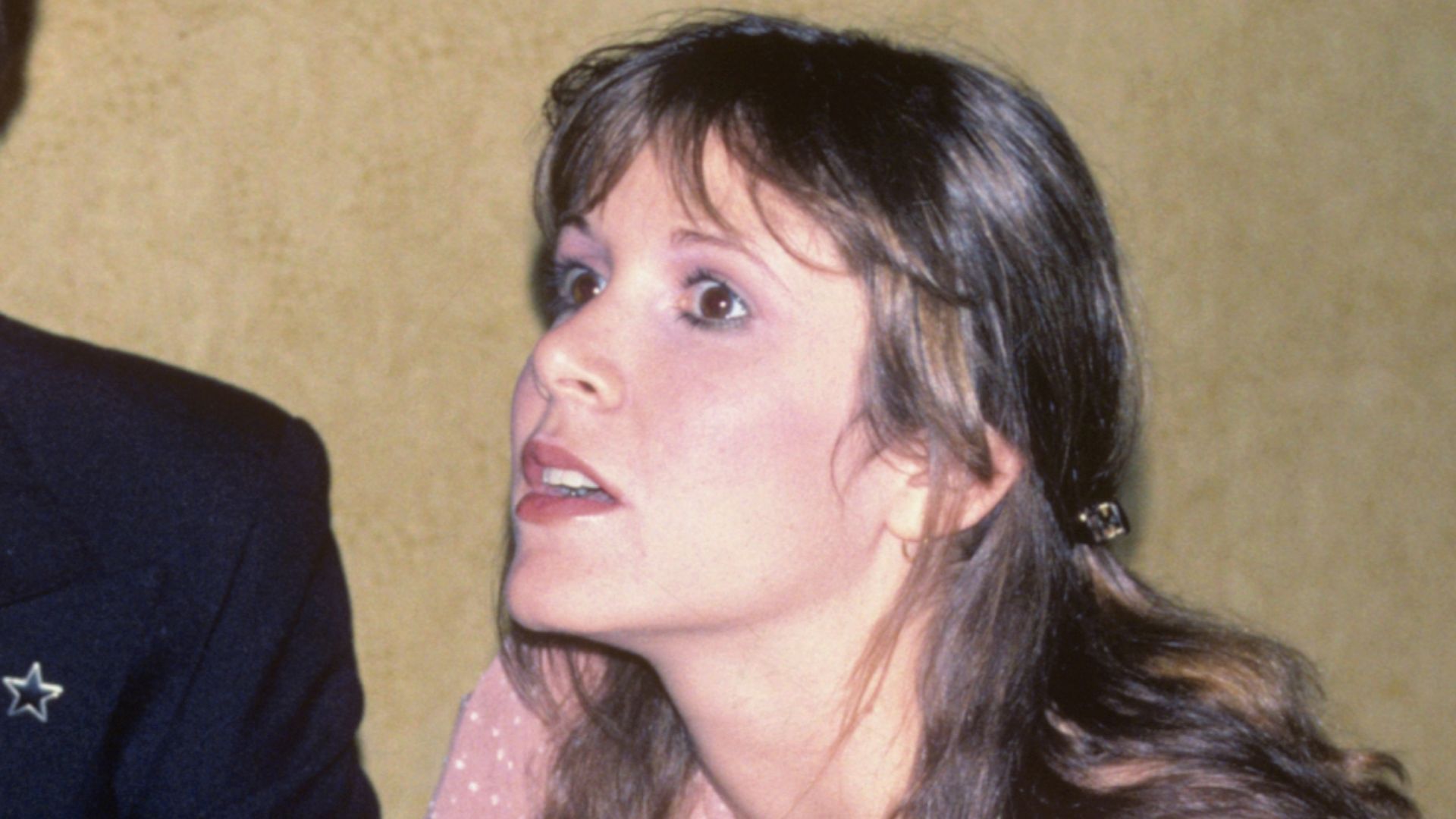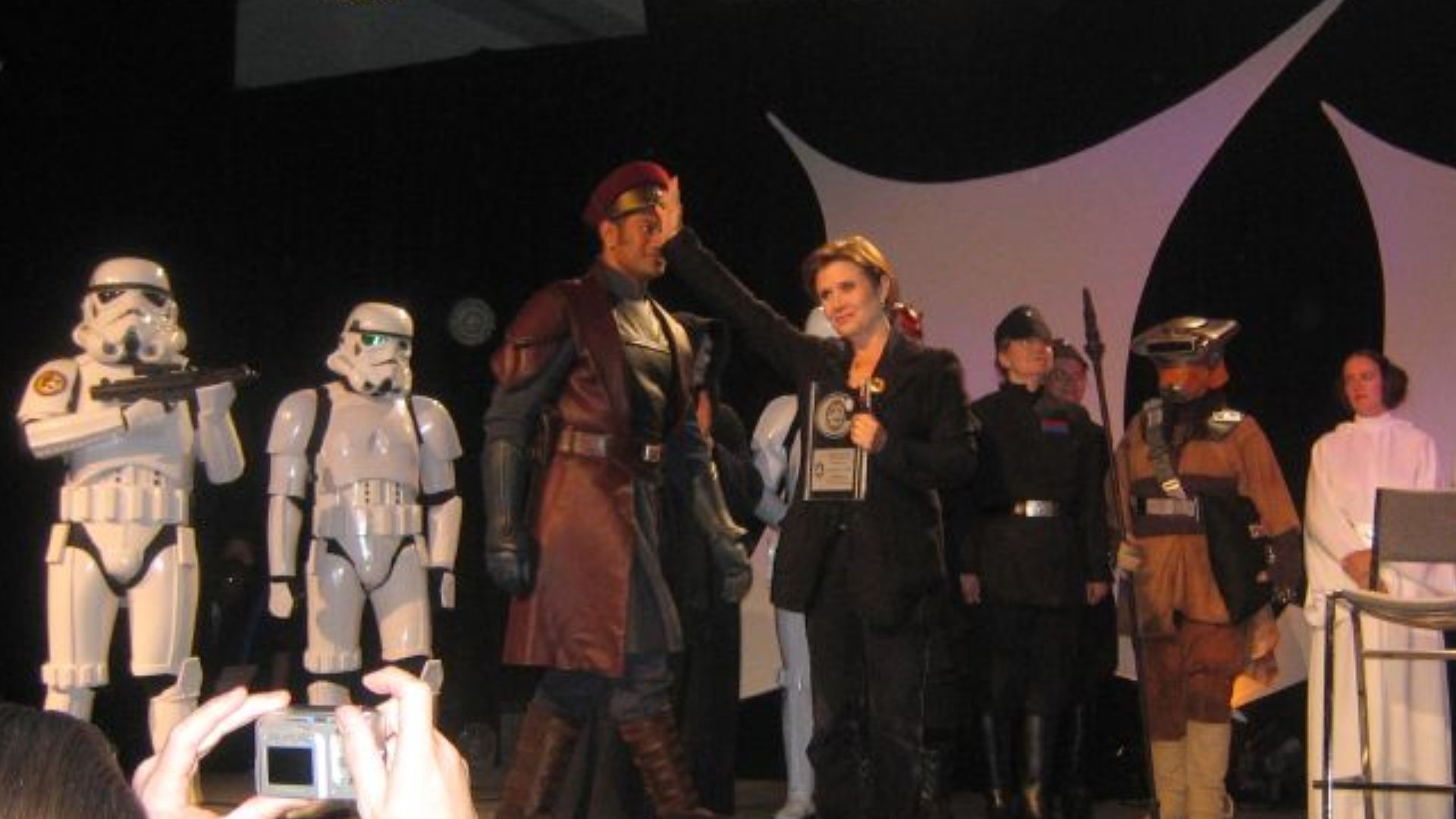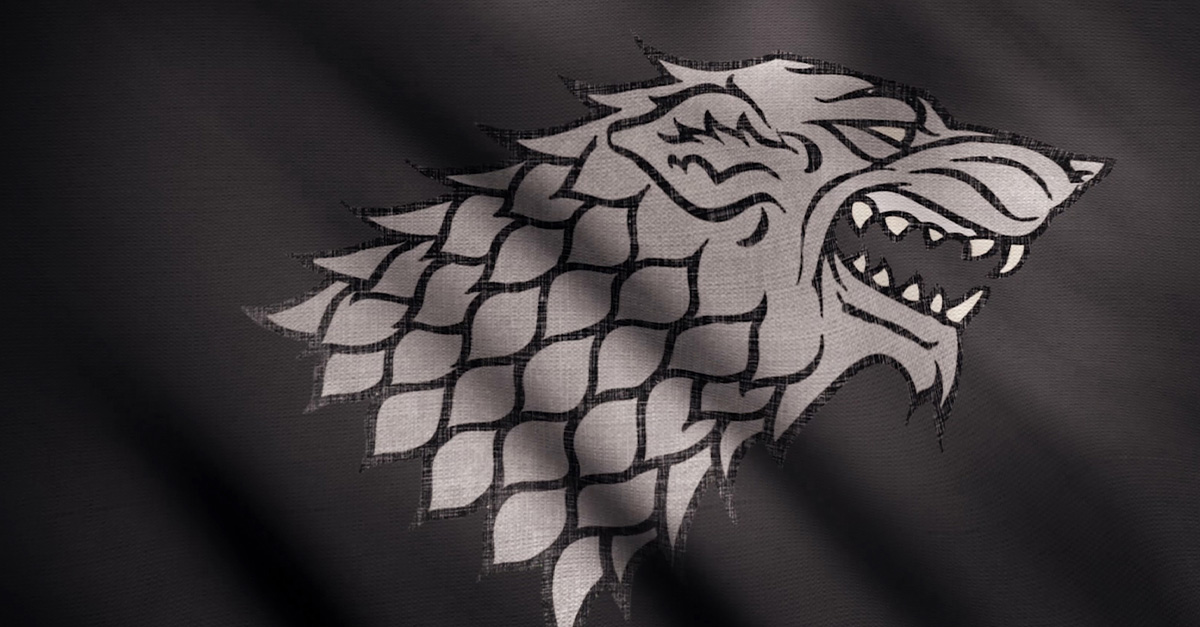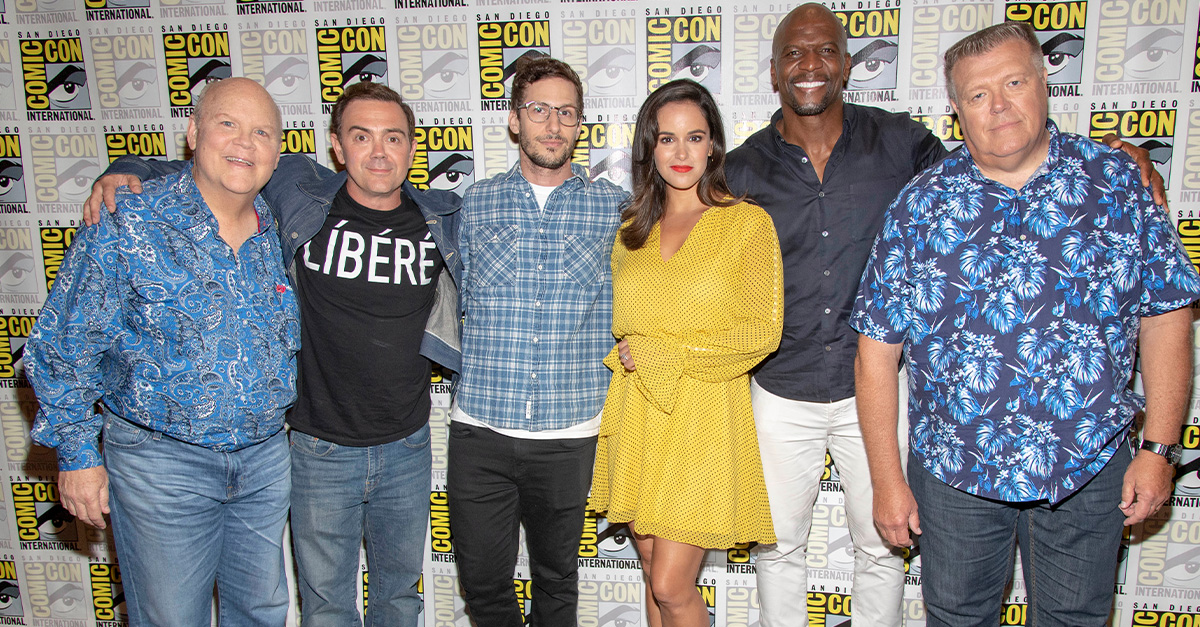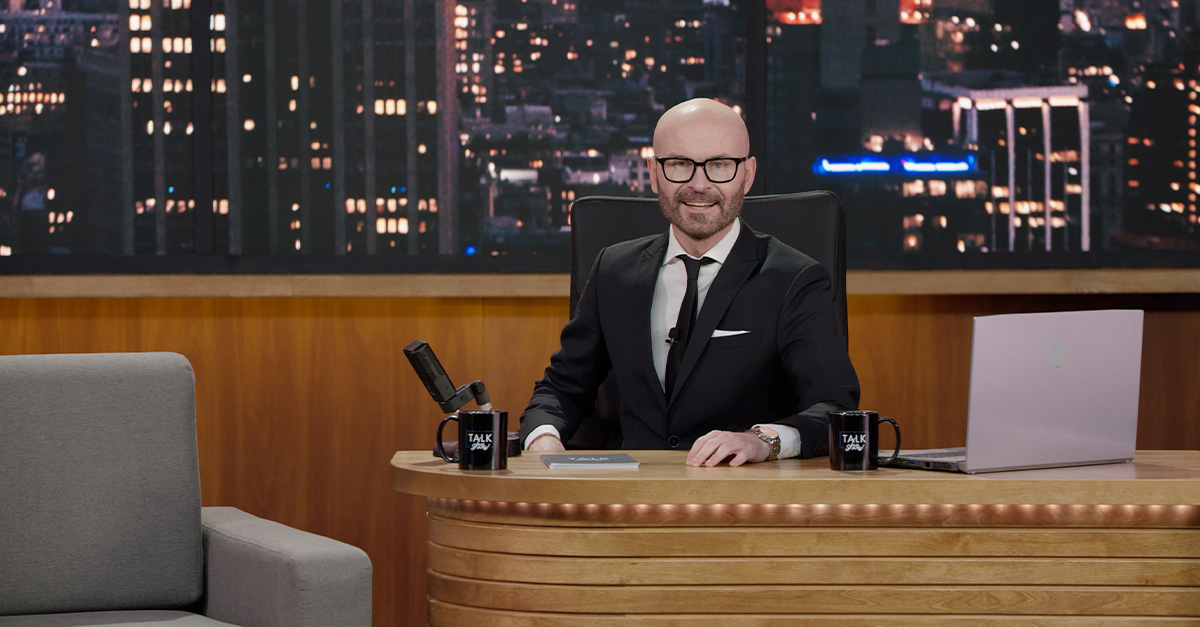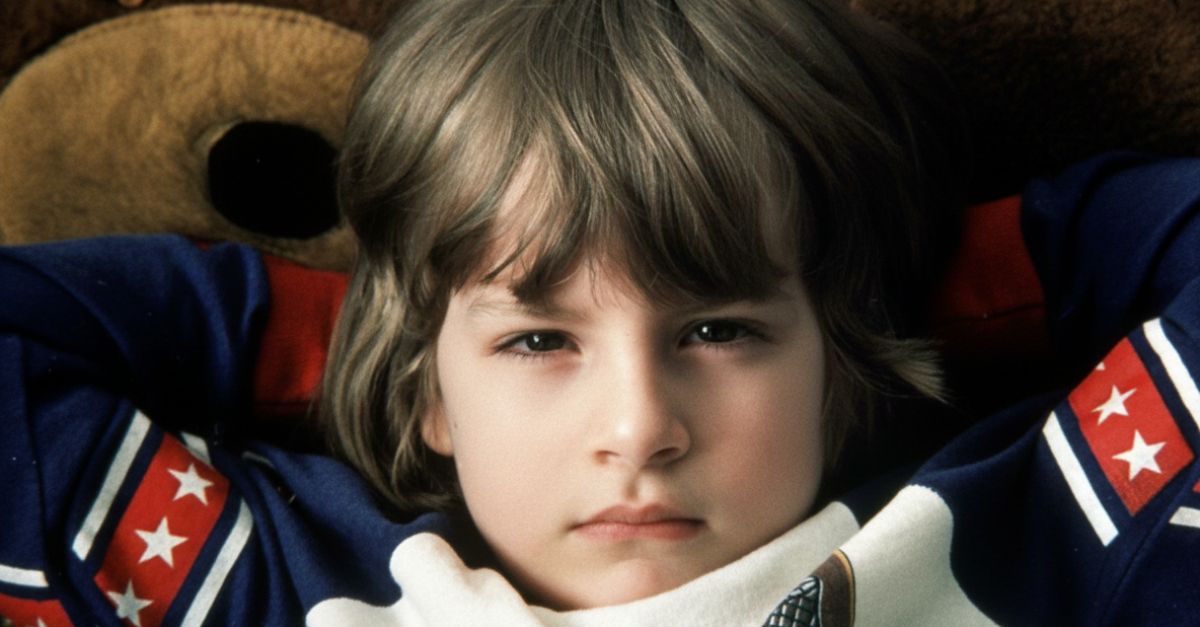Hollywood’s Unfiltered Rebel
Carrie Frances Fisher came into the world on October 21, 1956, in Beverly Hills — Hollywood royalty from the start. Her mom was the dazzling Debbie Reynolds, her dad the crooner Eddie Fisher. But even as a kid, Carrie didn’t want to live in anyone’s shadow — she wanted to tell her own story.
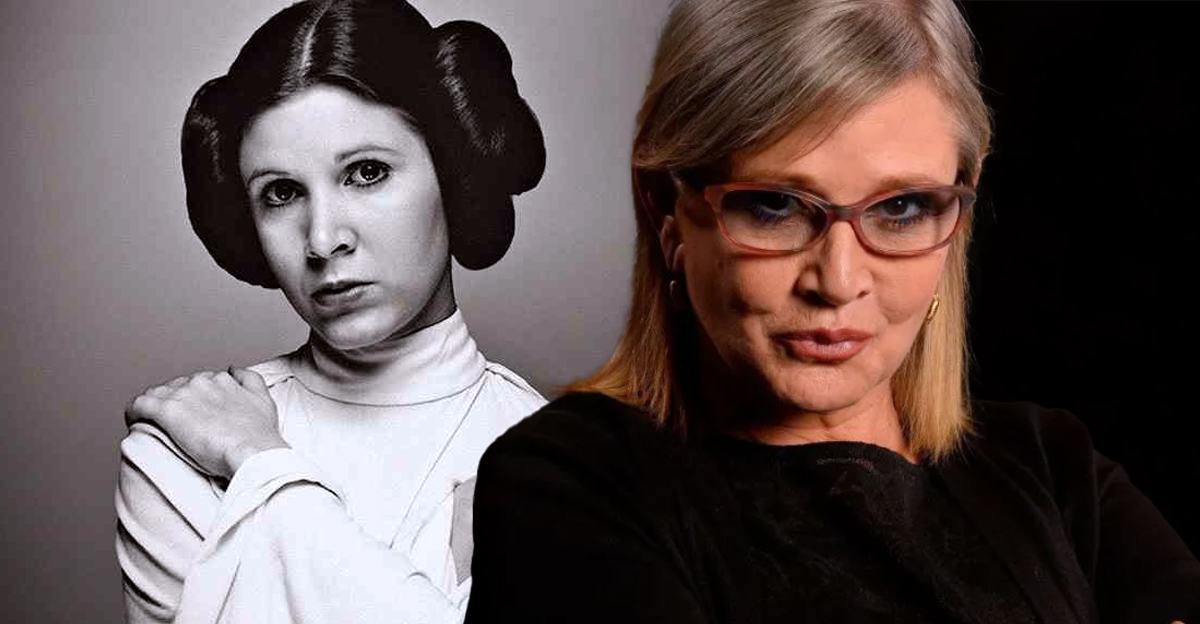
Growing Up in the Spotlight
When Carrie was just two, her parents’ marriage imploded in front of the entire world after Eddie left Debbie for Elizabeth Taylor. Tabloids went wild, and little Carrie learned early how cruel fame could be. She once joked that her childhood was like “growing up in a department store window.”
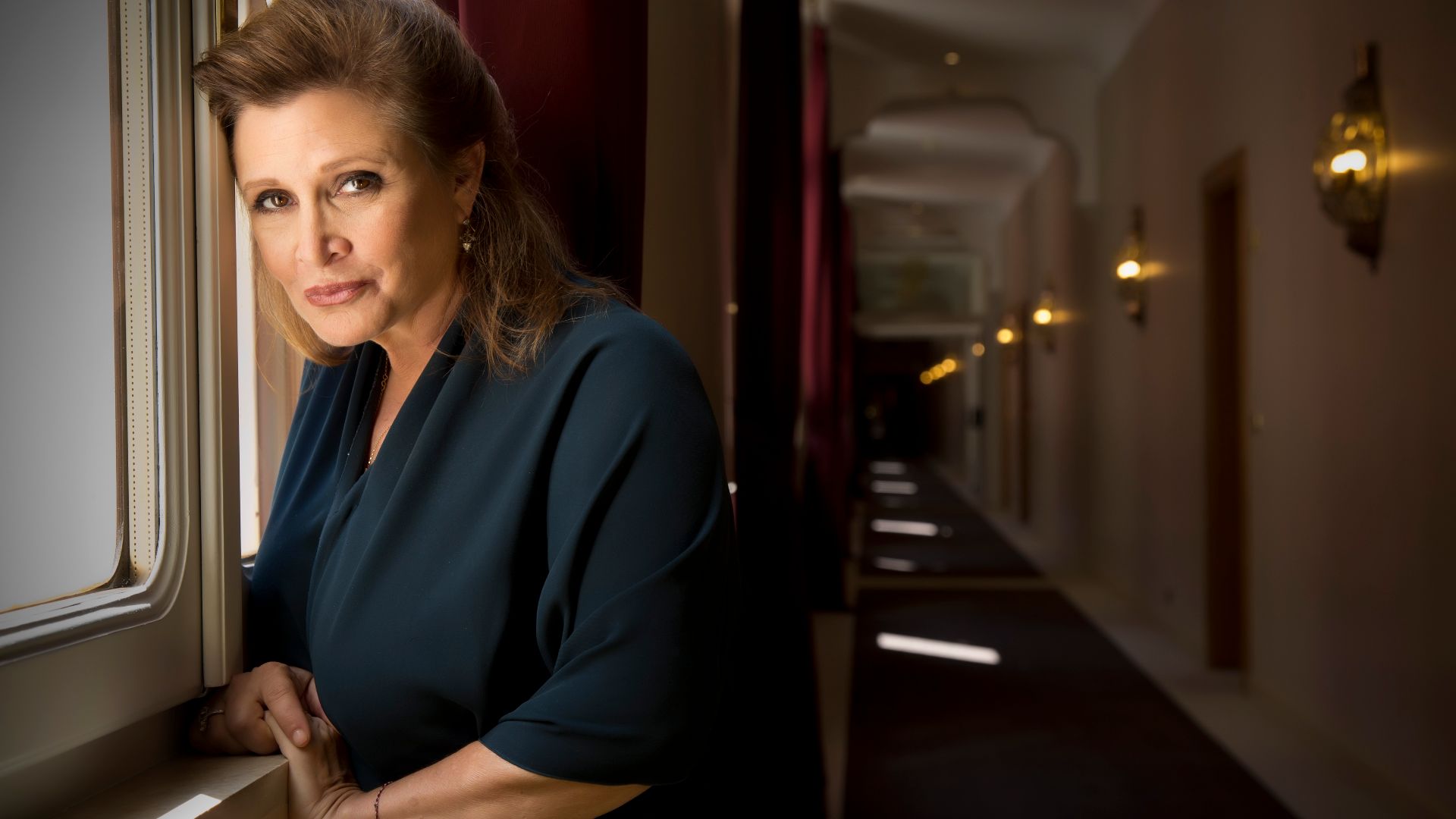 Riccardo Ghilardi photographer, Wikimedia Commons
Riccardo Ghilardi photographer, Wikimedia Commons
A Bookworm at Heart
While Hollywood sparkled around her, Carrie found refuge in books. She devoured poetry and classic literature, writing little stories and witty poems of her own. Long before she became Princess Leia, she dreamed of being a writer — someone who could turn pain into something beautiful.
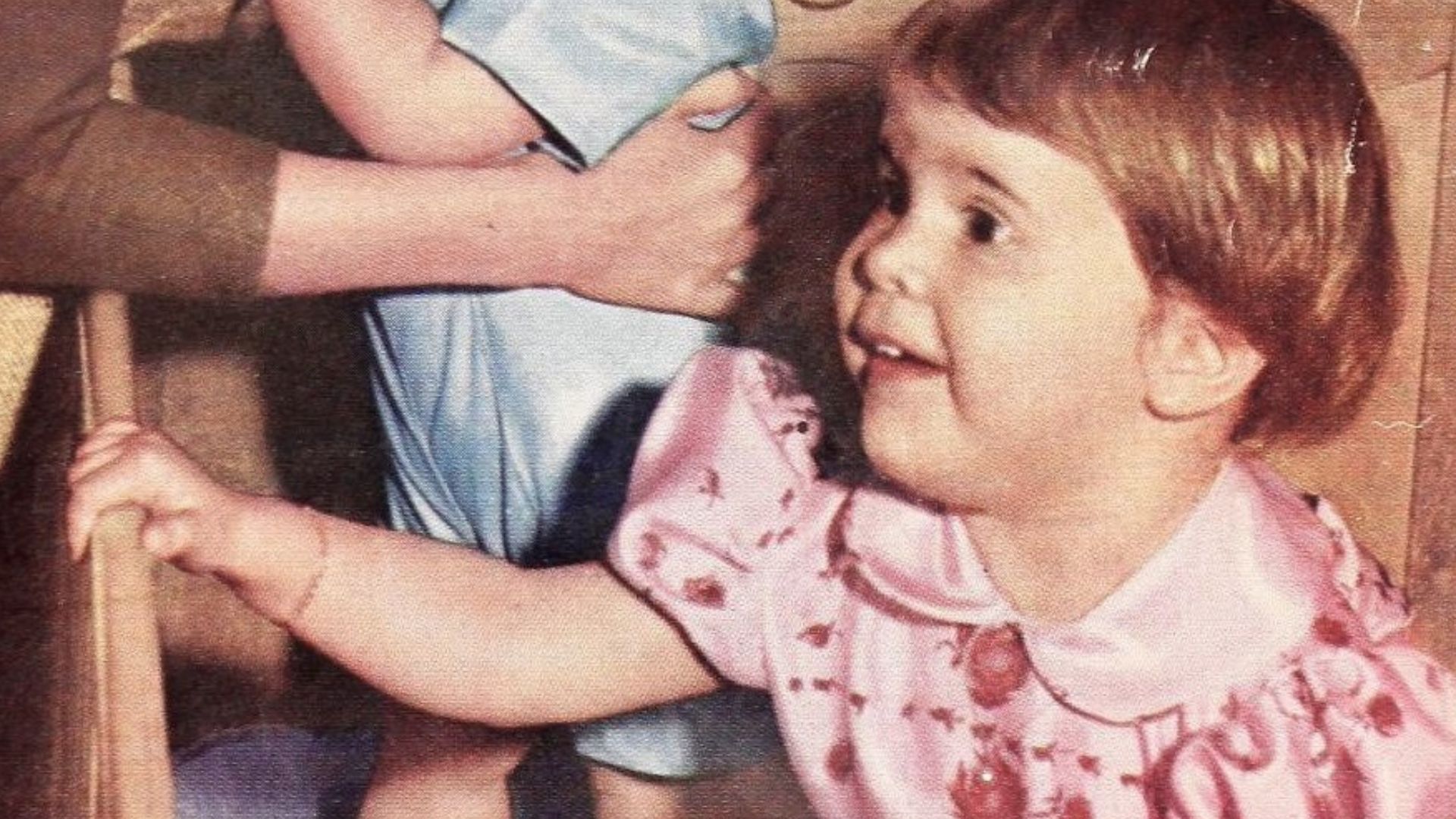 Dell Publishing, 1960. Photographer not credited, Wikimedia Commons
Dell Publishing, 1960. Photographer not credited, Wikimedia Commons
The Road to Star Wars
At 19, she auditioned for a small sci-fi movie no one expected to take off — Star Wars. She got the part, and Princess Leia Organa became a global phenomenon. The hair buns, the blaster, the attitude — it was all Carrie. “They told me to lose weight,” she laughed later. “I told them they could lose me.”
More Than a Princess
Carrie wasn’t just playing a strong woman — she was one. Princess Leia’s confidence and defiance reflected her own. “I wasn’t a damsel in distress,” she said proudly. “I was a distressing damsel.” That mix of humor and truth became her trademark.
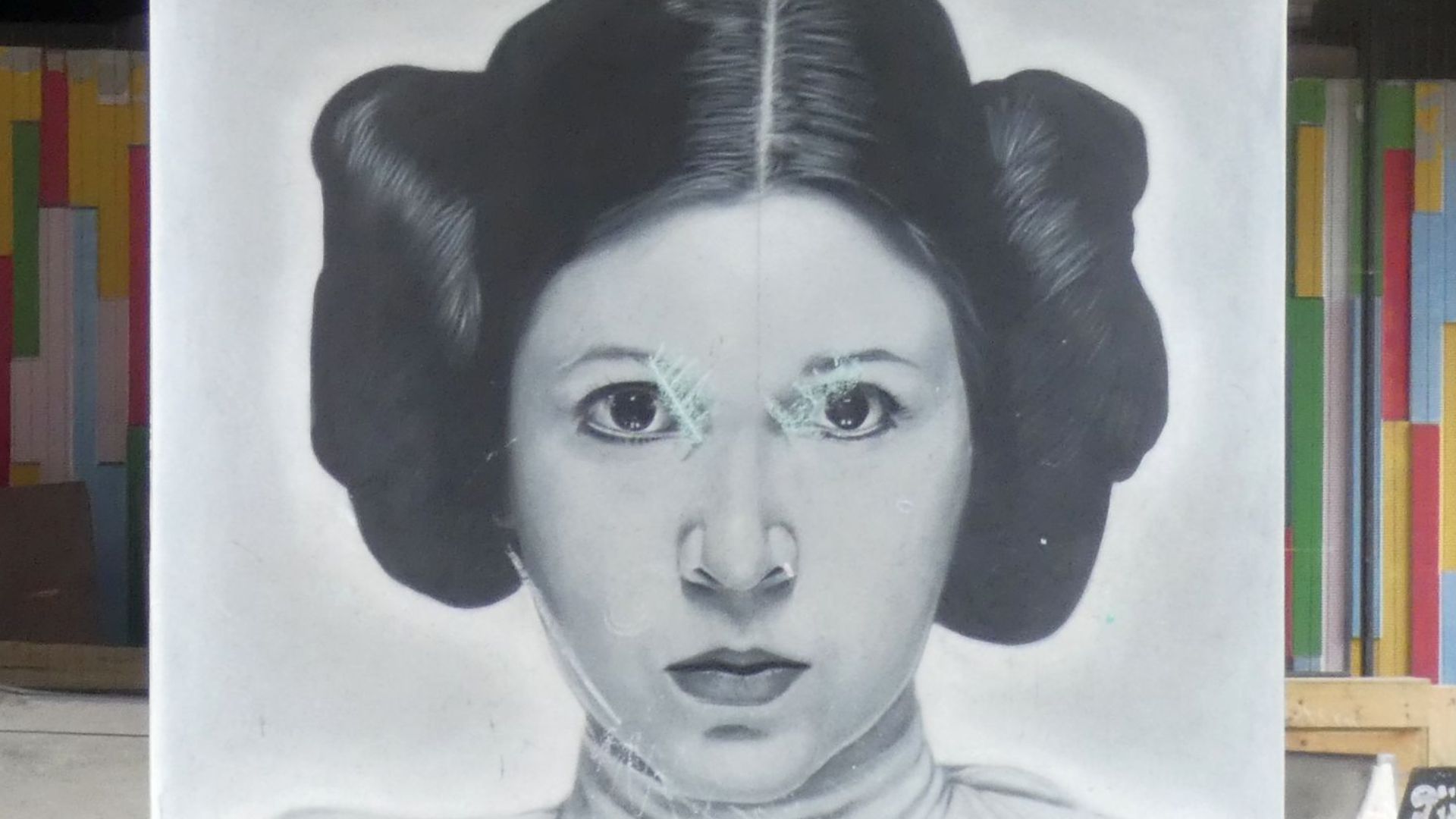 Gerald England , Wikimedia Commons
Gerald England , Wikimedia Commons
Speaking Truth About Hollywood
Carrie didn’t sugarcoat the industry. She spoke up about sexism, ageism, and the ridiculous standards placed on women. “They wanted me to lose ten pounds of my head,” she once joked. But behind the punchlines was a message — she refused to be reduced to her looks.
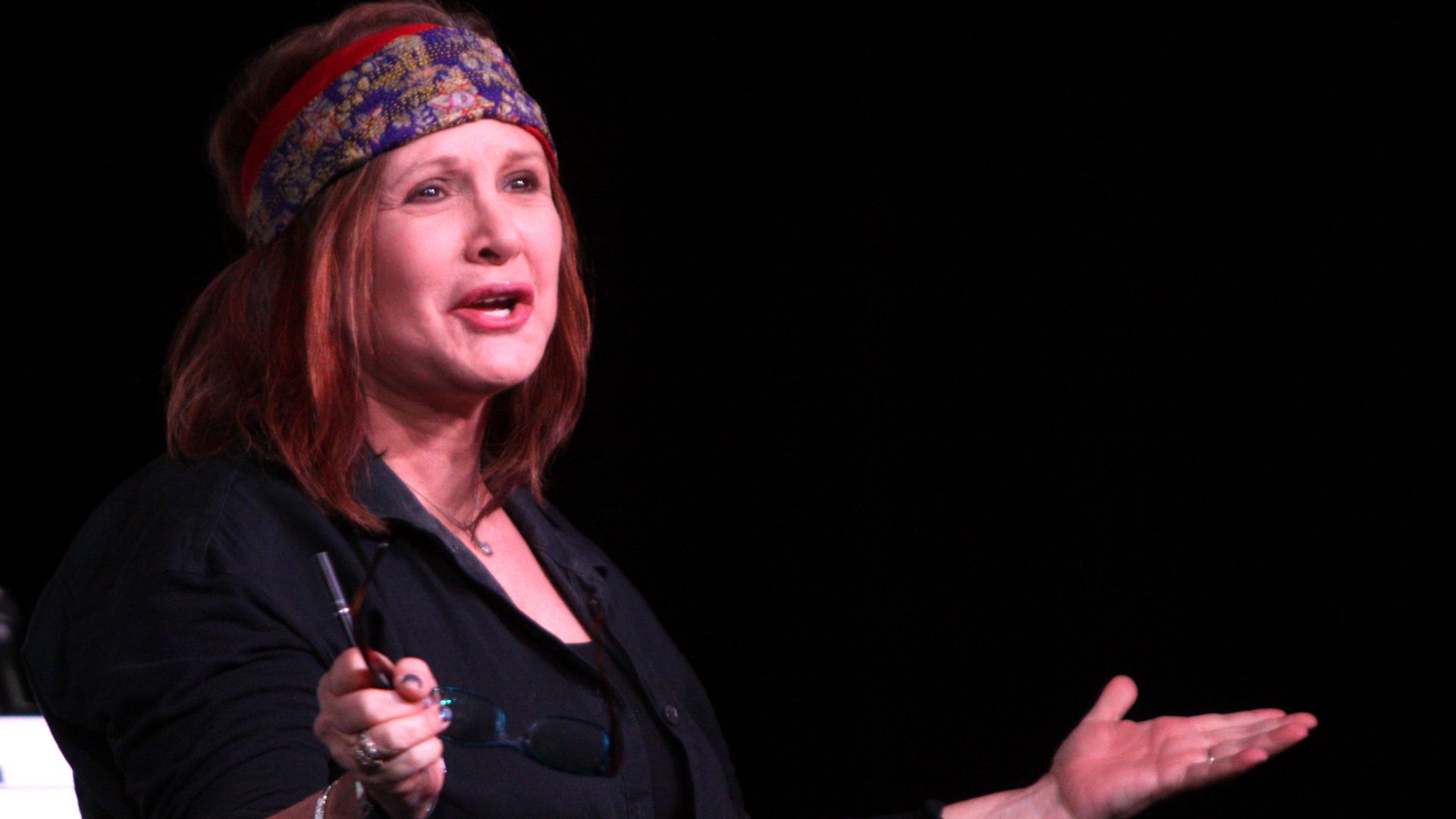 Gage Skidmore from Peoria, AZ, United States of America, Wikimedia Commons
Gage Skidmore from Peoria, AZ, United States of America, Wikimedia Commons
Battling Personal Demons
Carrie’s life wasn’t all glamour. She struggled with addiction and was diagnosed with bipolar disorder in her twenties. But she didn’t hide it — she owned it. “I am mentally ill,” she once said, “and I survived.” Her openness gave others permission to talk about their own struggles.
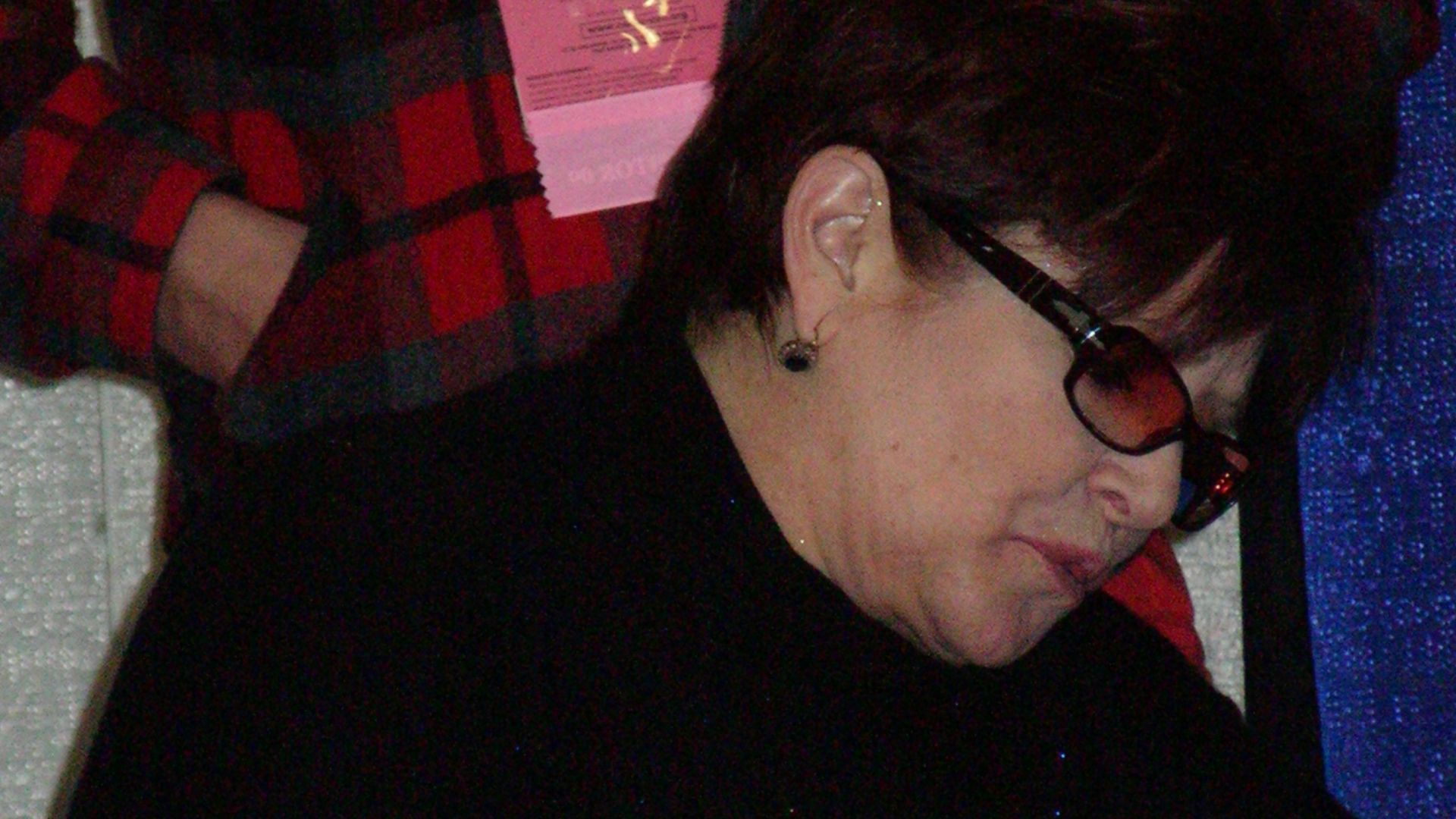 BrokenSphere, Wikimedia Commons
BrokenSphere, Wikimedia Commons
Turning Pain into Art
Carrie’s 1987 novel Postcards from the Edge was a thinly veiled look at her own life — messy, funny, and real. It became a bestseller and later a hit film starring Meryl Streep. Carrie used her pain as material and transformed it into art that helped others laugh through theirs.
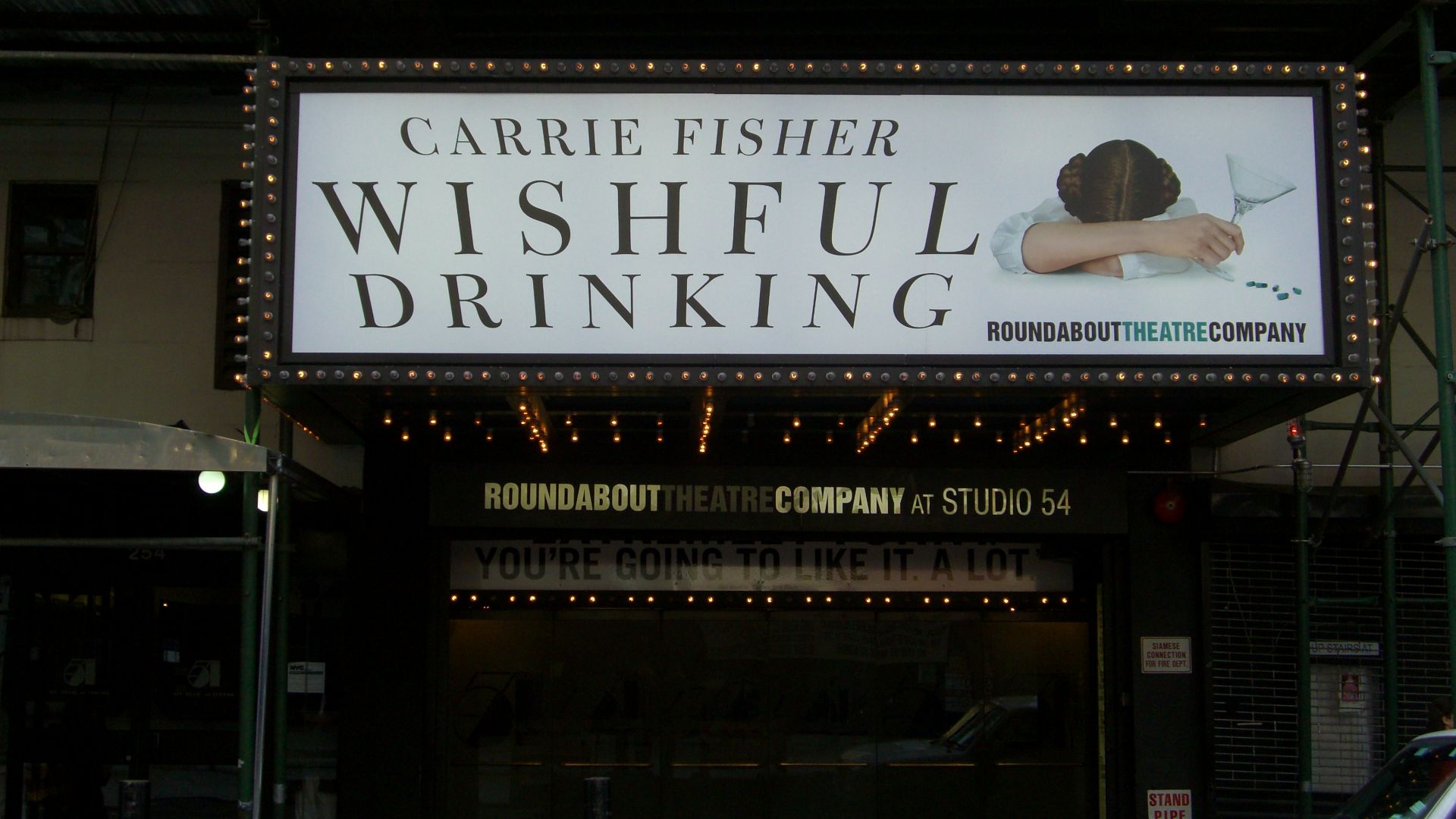 Broadway42ndSt, Wikimedia Commons
Broadway42ndSt, Wikimedia Commons
A Master of Self-Deprecation
Carrie had a knack for laughing at herself before anyone else could. “If my life wasn’t funny,” she said, “it would just be true — and that’s unacceptable.” That sharp humor became her shield, her therapy, and her superpower.
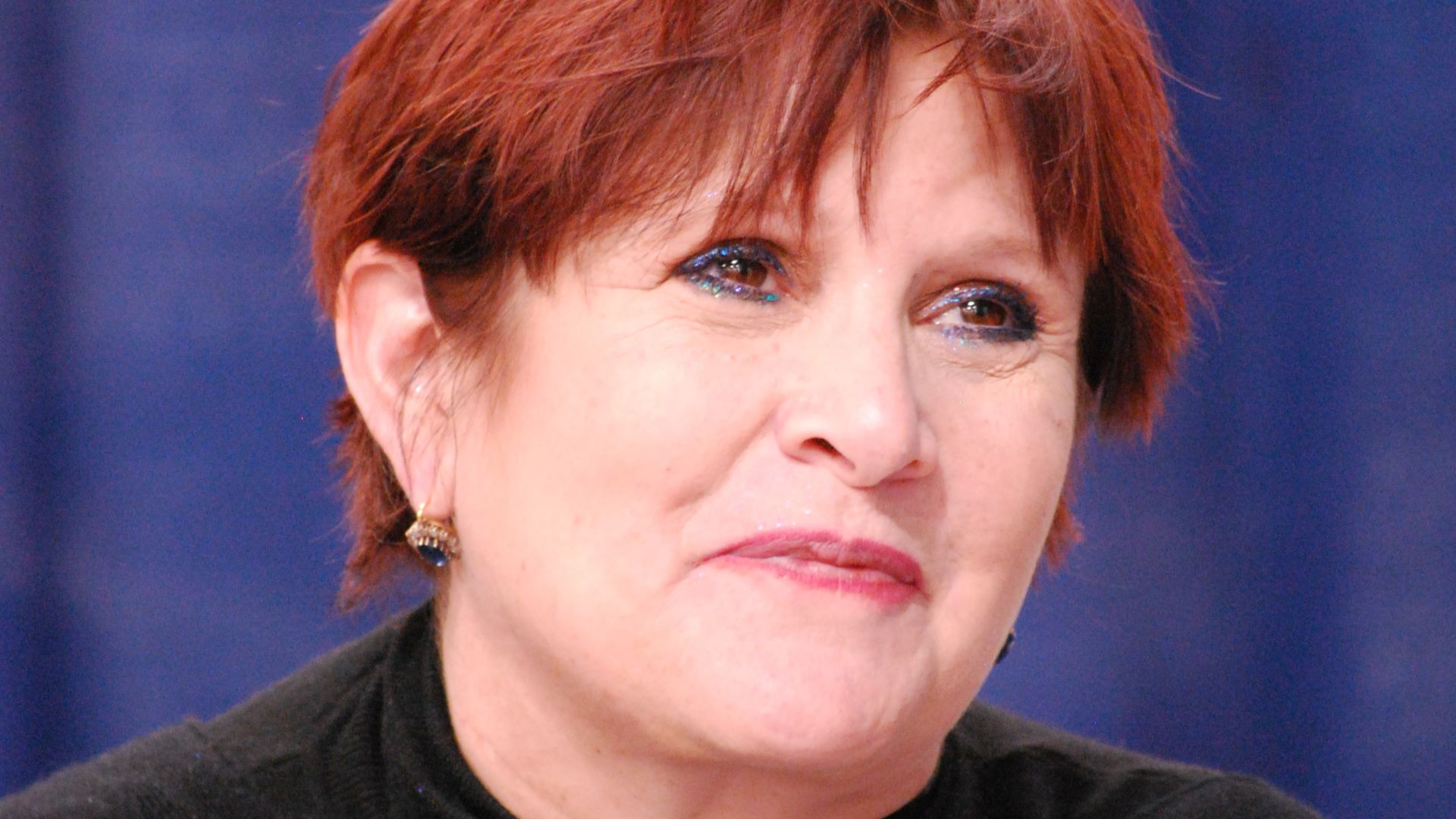 matt klein from California, USA, Wikimedia Commons
matt klein from California, USA, Wikimedia Commons
Life with Debbie Reynolds
Her relationship with her mom, Debbie, was loving but complicated. “We were on top of each other like twins,” Carrie said once. Later, they became literal next-door neighbors. Through ups and downs, their bond never broke — just like in the movies.
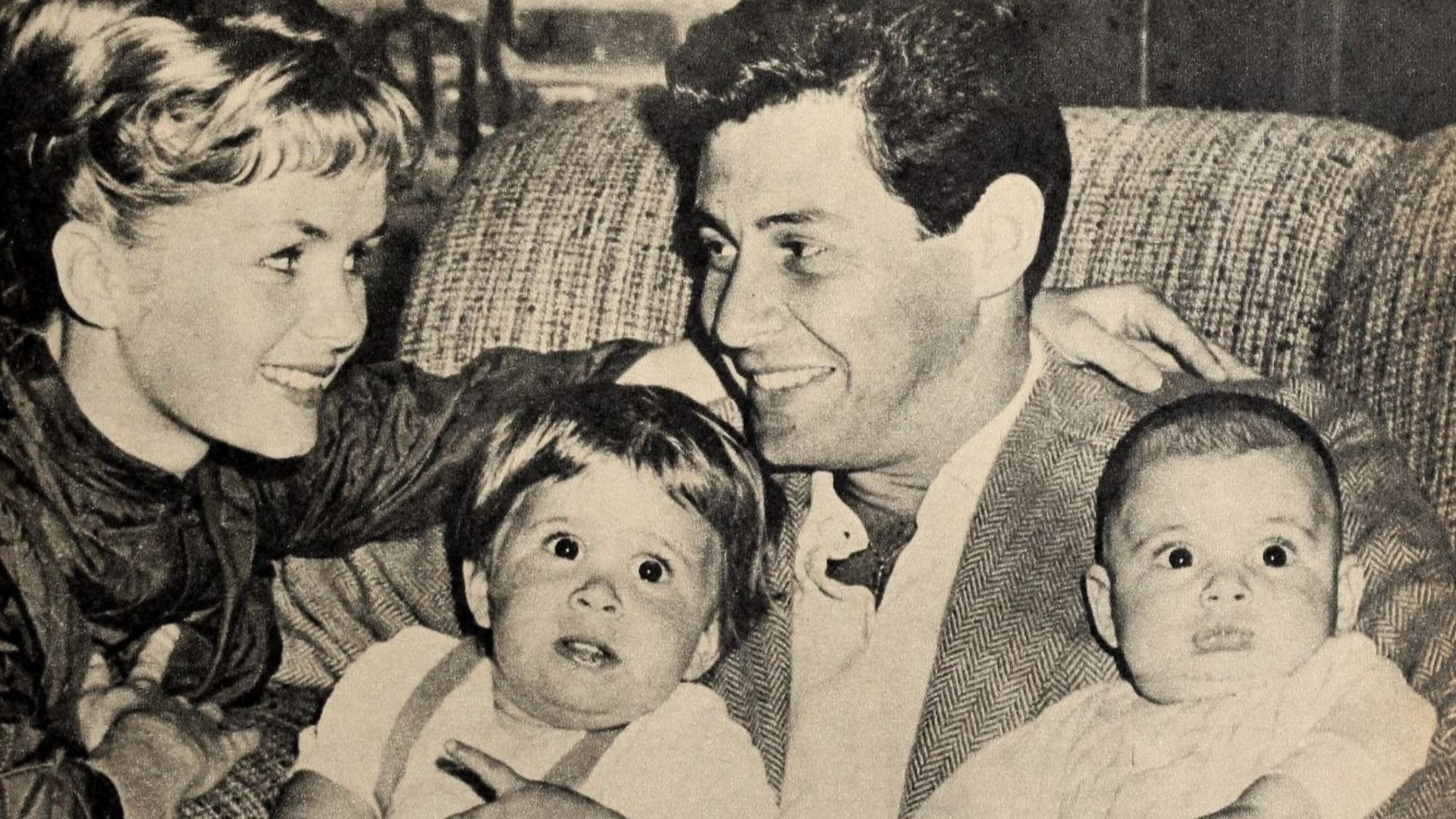 Gloria Luchenbill [1], Wikimedia Commons
Gloria Luchenbill [1], Wikimedia Commons
A Voice for Mental Health
Carrie turned her platform into purpose. She spoke honestly about mental illness, addiction, and recovery — the stuff most stars avoided. “There’s no shame in needing help,” she told audiences. “There’s only shame in not asking for it.” She made vulnerability cool.
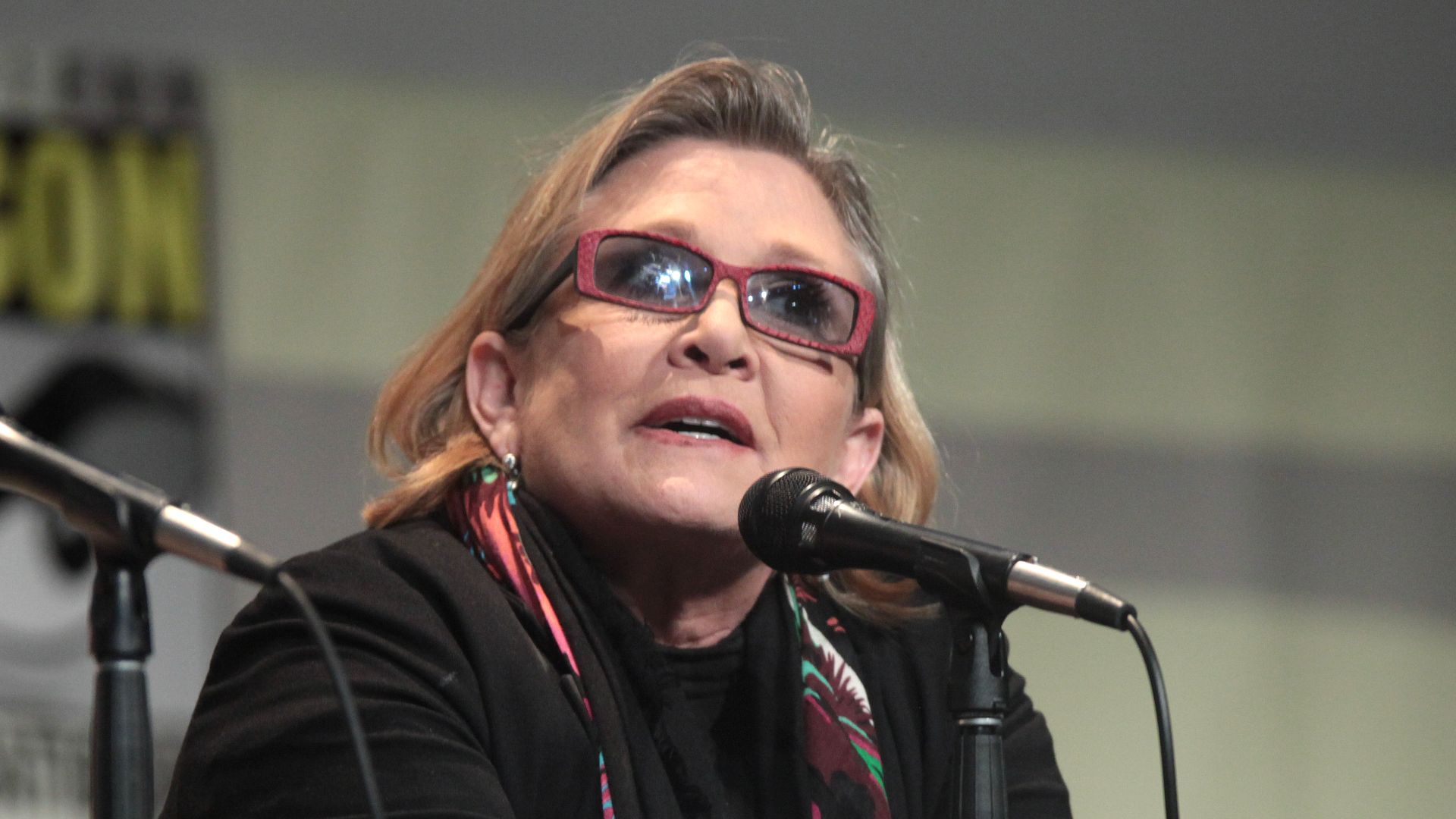 Gage Skidmore from Peoria, AZ, United States of America, Wikimedia Commons
Gage Skidmore from Peoria, AZ, United States of America, Wikimedia Commons
The Return of Leia
When The Force Awakens came out in 2015, fans cheered to see Leia again — this time as General Organa. Some critics commented on her aging face, and Carrie clapped back: “Please stop debating about whether or not I aged well. Unfortunately, it hurts — and it’s unladylike.”
No Filter, No Fear
Carrie had no filter, and that’s why people loved her. She once told a journalist, “I don’t have to play nice — I have to be honest.” Her brutal honesty about fame, family, and mental health made her one of Hollywood’s most genuine voices.
The Sharpest Tongue in Hollywood
Her wit was unmatched. Asked how it felt to be an action figure, she replied, “I’ve been a doll for years — just not the kind you buy in stores.” Everyone knew: if you crossed Carrie Fisher, you’d be roasted — lovingly, but completely.
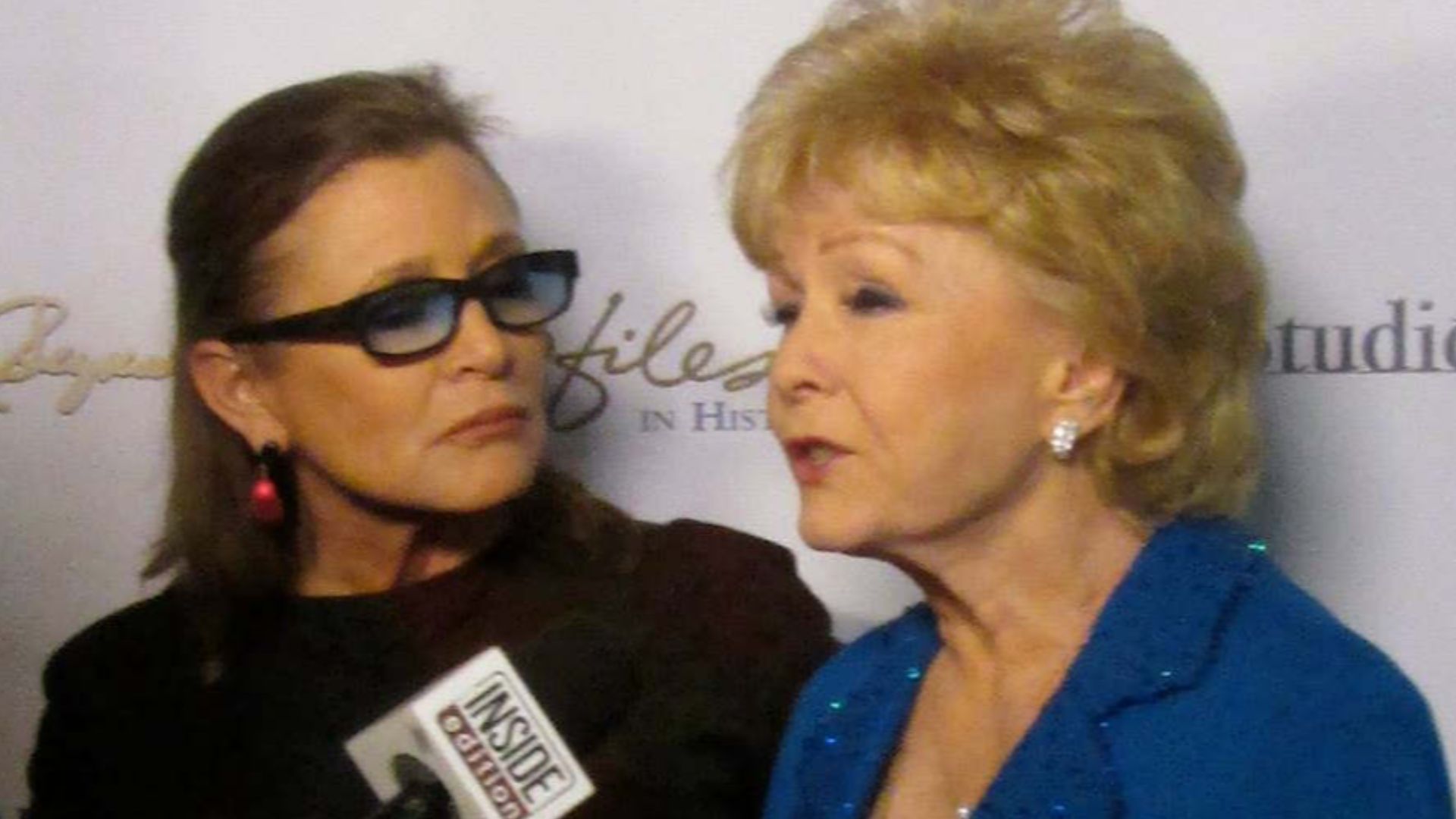 Greg Hernandez from California, CA, USA, Wikimedia Commons
Greg Hernandez from California, CA, USA, Wikimedia Commons
Friend to the Misfits
Carrie’s home was always full of people — writers, comedians, friends in recovery, struggling actors. She had a soft spot for anyone who didn’t fit in. To her, weird was wonderful. She made everyone feel like they belonged somewhere — usually in her living room, with snacks.
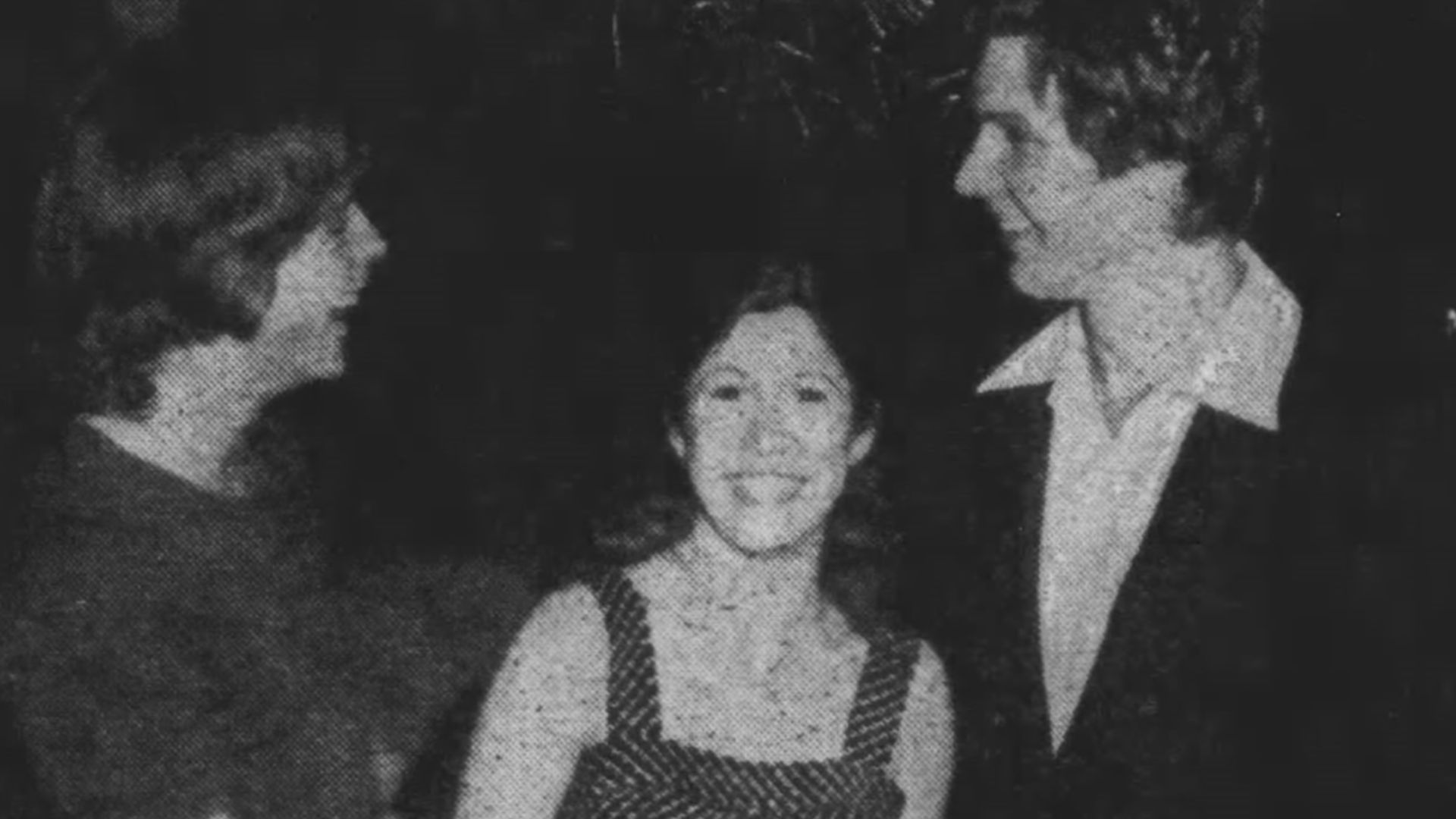 Argus Photographer, Wikimedia Commons
Argus Photographer, Wikimedia Commons
Life as a Mother
Her daughter, Billie Lourd, meant everything to her. Carrie adored her fiercely and taught her the value of humor and honesty. “My mom taught me not to take myself too seriously,” Billie said later. “She was the funniest, most honest person I’ve ever known.”
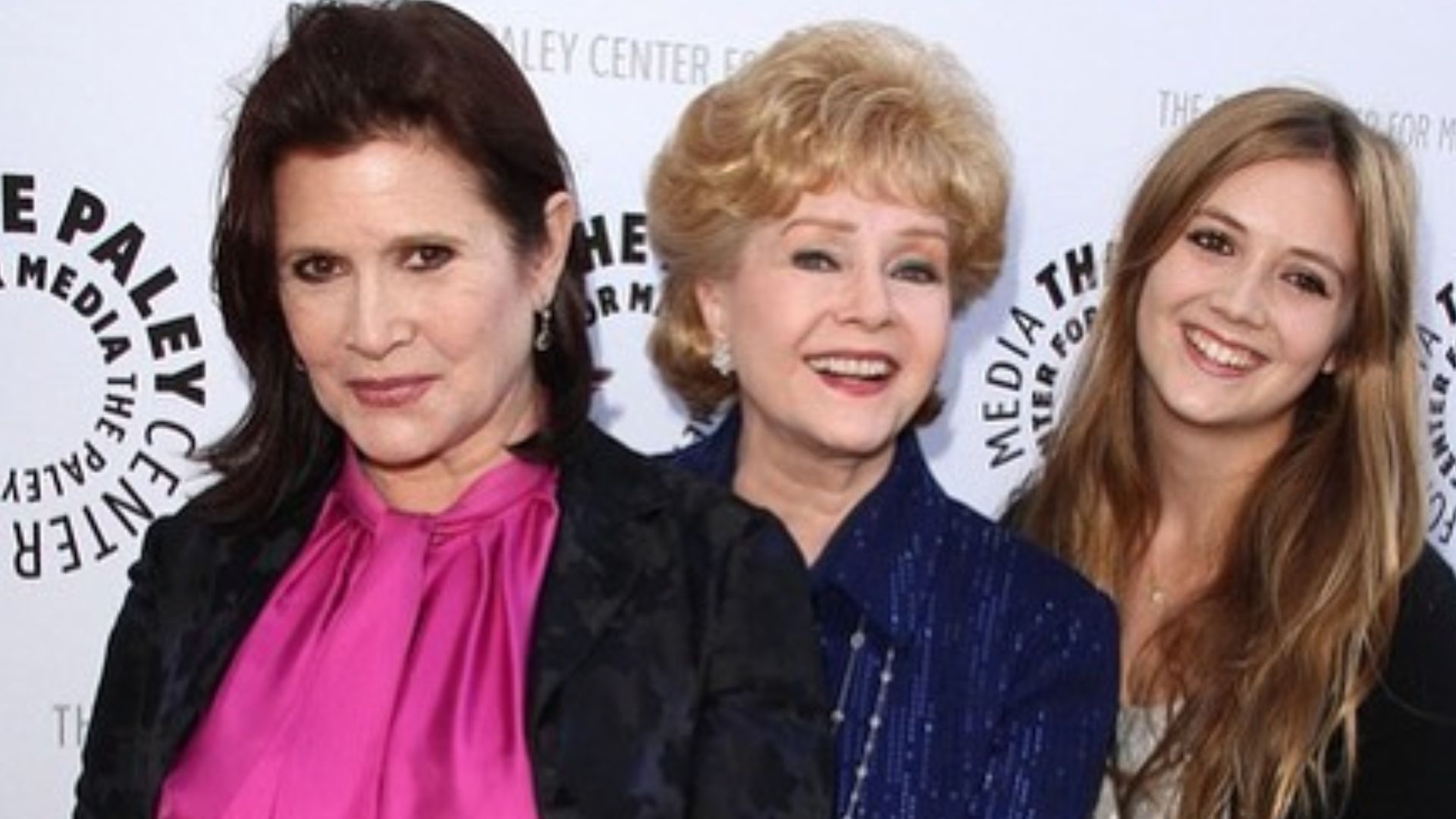 Casey Florig, Wikimedia Commons
Casey Florig, Wikimedia Commons
A Woman Who Spoke Up
Carrie didn’t stand by when people were mistreated. Whether it was sexism in Hollywood or a friend being harassed, she stepped in — loudly. “I don’t need a cape to be a hero,” she once said. “I just need a mouth — and maybe a pen.”
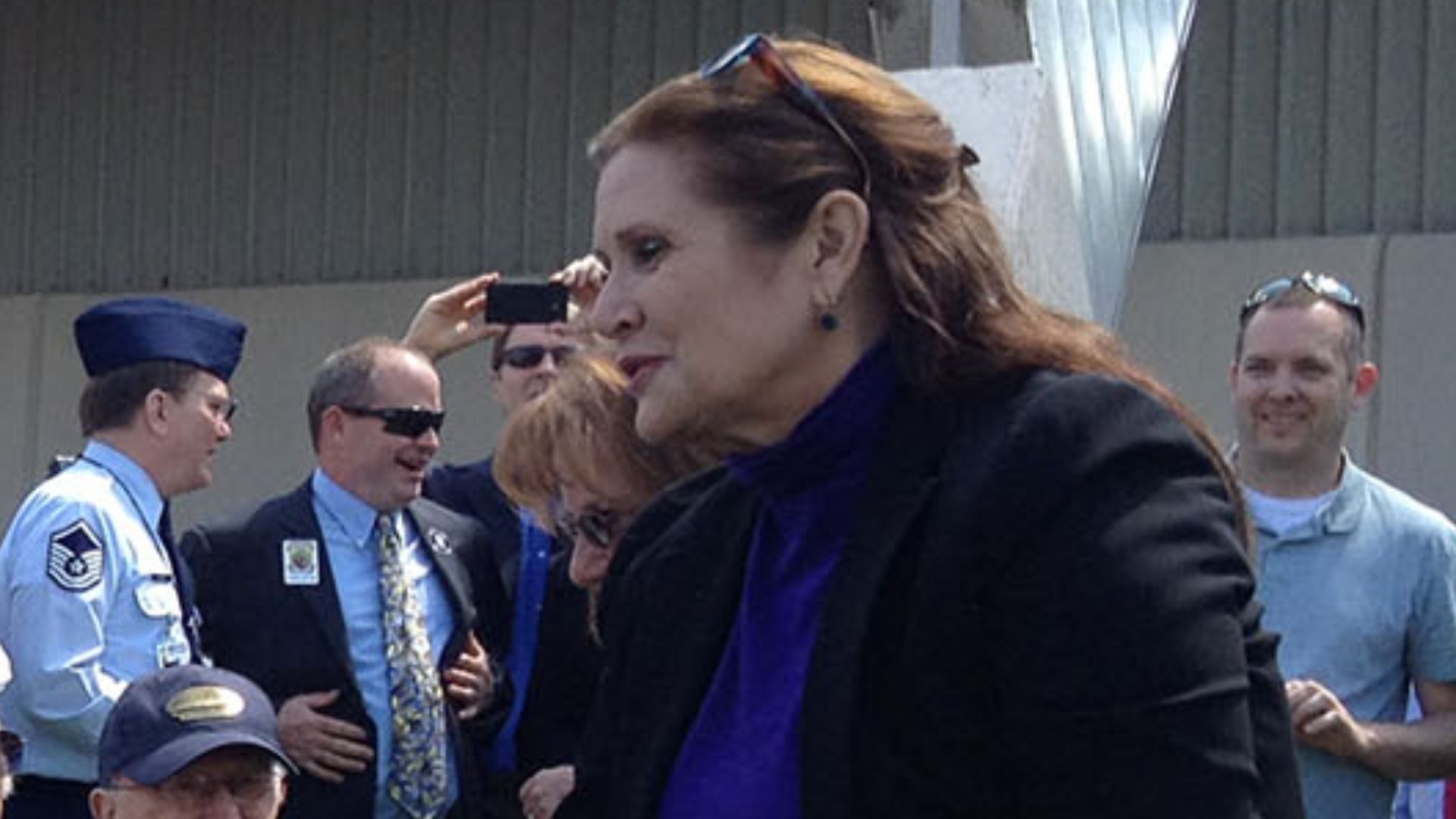 U.S. Air Force photo, Wikimedia Commons
U.S. Air Force photo, Wikimedia Commons
The Humor in Healing
Even therapy couldn’t escape her wit. She used her sessions as inspiration for jokes and books. “I should get royalties,” she quipped, “because my mental illness has given me a career.” She made people laugh at the things they were too scared to talk about.
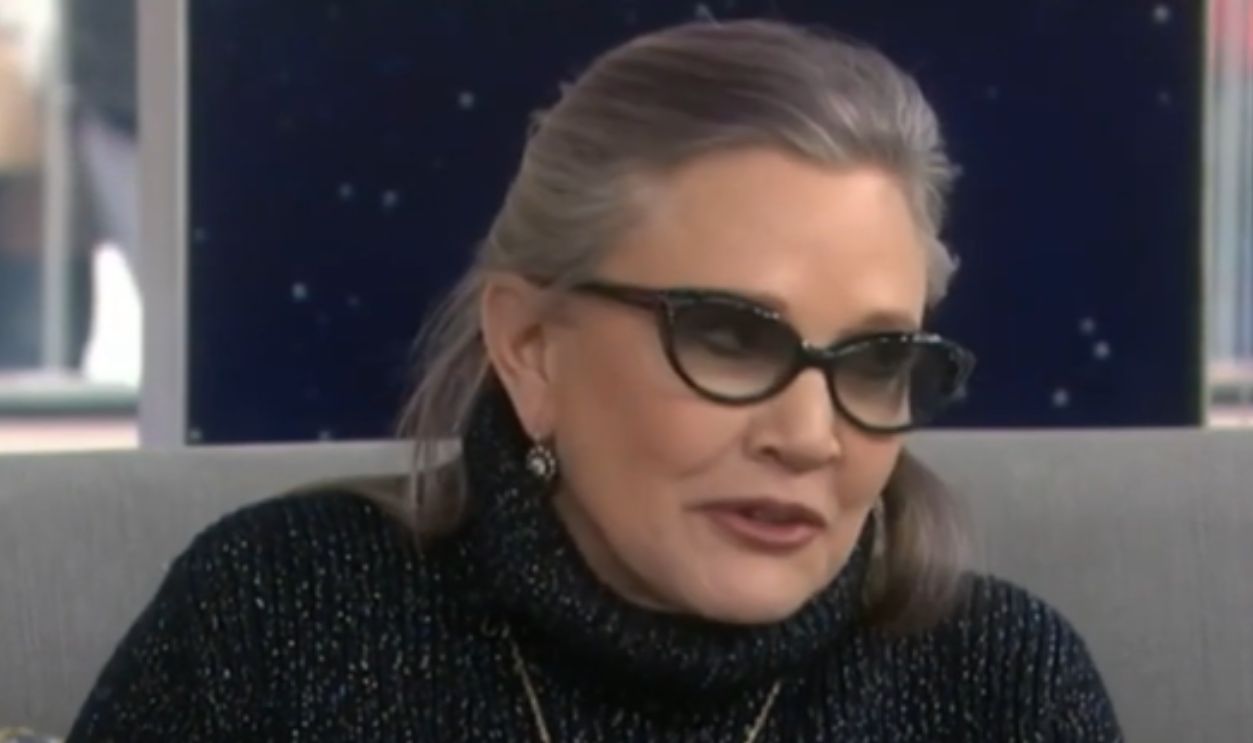 Fight Against Mental Illness For Carrie Fisher | MSNBC, MSNBC
Fight Against Mental Illness For Carrie Fisher | MSNBC, MSNBC
Writer, Performer, Rebel
Beyond Star Wars, Carrie worked behind the scenes as one of Hollywood’s best “script doctors.” She punched up screenplays for movies like Hook, Sister Act, and The Wedding Singer. Most people never knew she’d written their favorite lines. She liked it that way.
Standing Up for Women
Carrie refused to let Hollywood chew up young actresses the way it once did her. She mentored others, called out predators, and used her sharp humor to make her point. She didn’t just talk about empowerment — she practiced it daily.
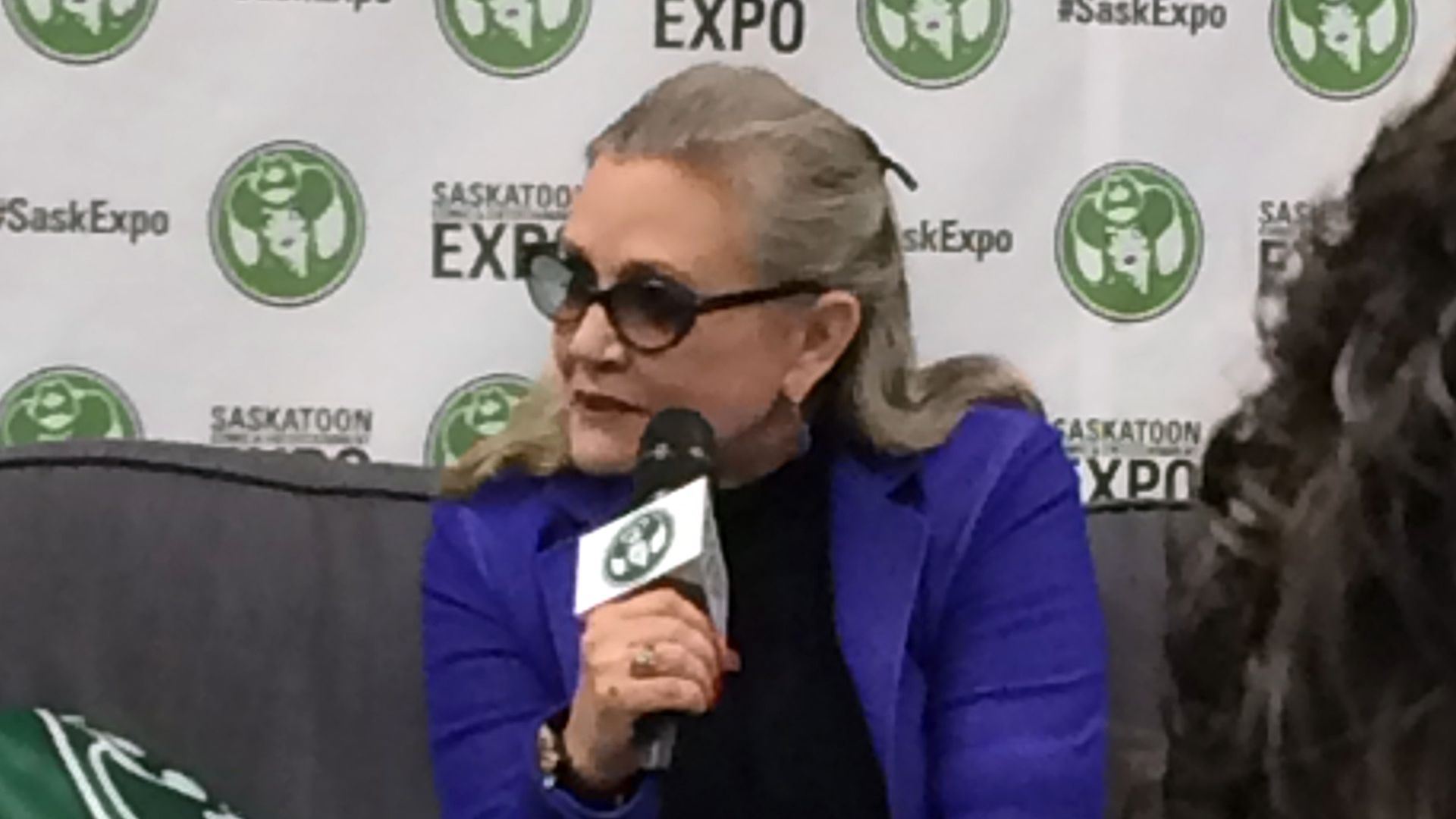 daryl_mitchell from Saskatoon, Saskatchewan, Canada, Wikimedia Commons
daryl_mitchell from Saskatoon, Saskatchewan, Canada, Wikimedia Commons
A Sense of Humor Until the End
Carrie never lost her edge. “I want it reported that I drowned in moonlight, strangled by my own bra,” she joked about her eventual death. When she passed in 2016, the world laughed through tears — because she would’ve wanted it that way.
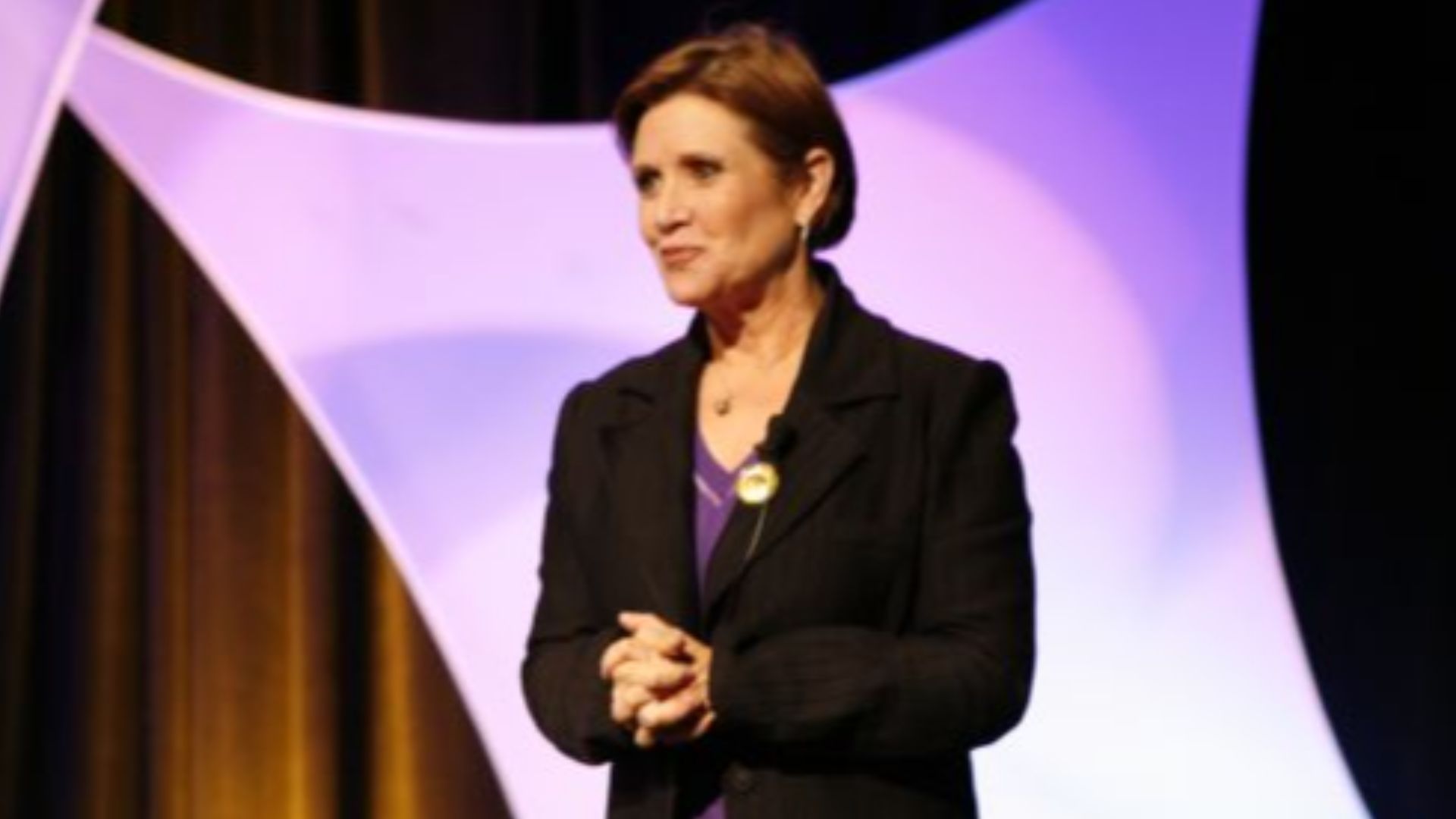 Official Star Wars Blog, Wikimedia Commons
Official Star Wars Blog, Wikimedia Commons
The Mother-Daughter Goodbye
The day after Carrie died, her mother, Debbie Reynolds, passed away too. Debbie’s last words were, “I want to be with Carrie.” Their love story — full of chaos, laughter, and deep affection — ended just as beautifully as it began: together.
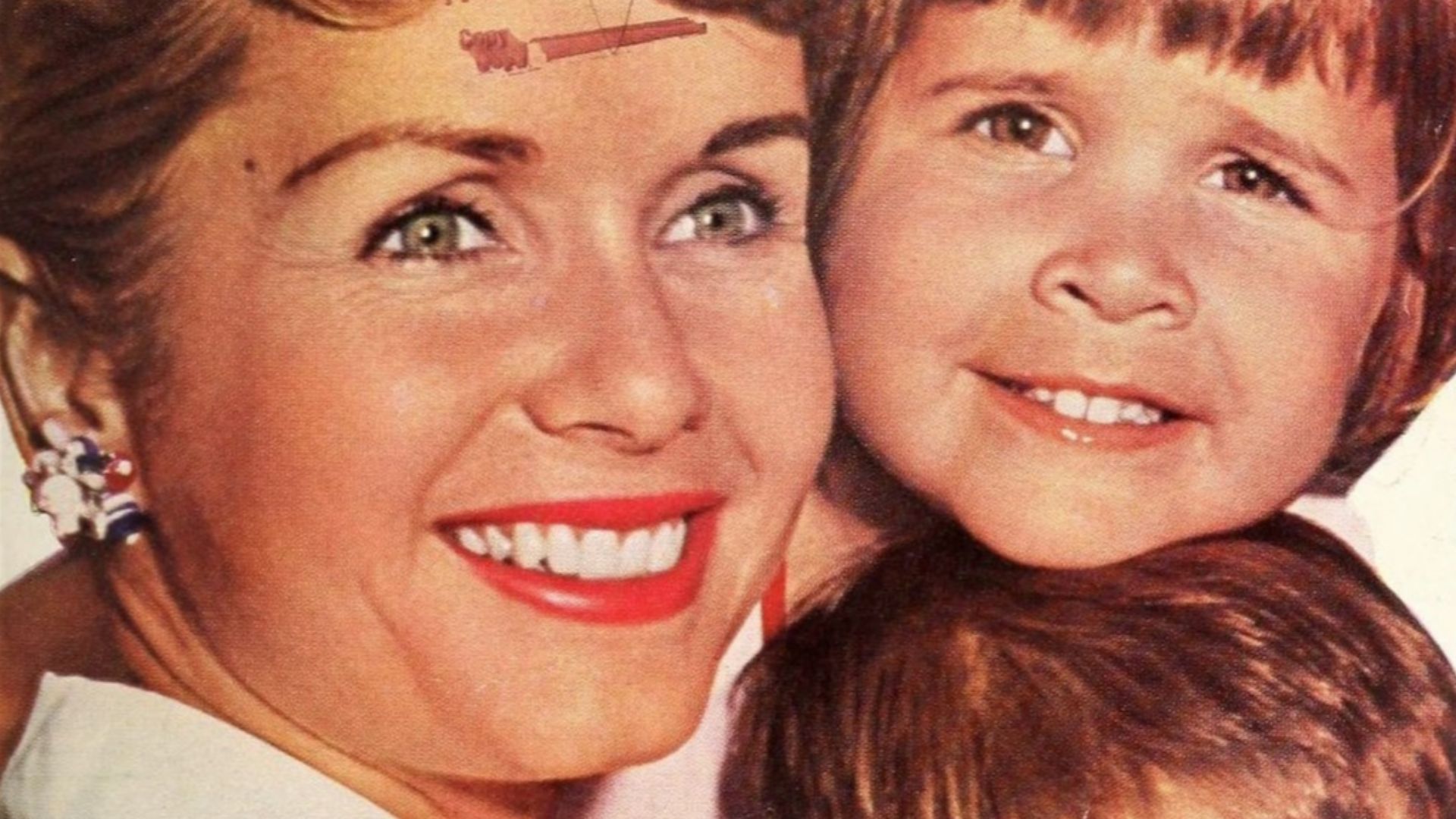 Dell Publishing, 1960. Photographer: Nat Dallinger of Gilloon, Wikimedia Commons
Dell Publishing, 1960. Photographer: Nat Dallinger of Gilloon, Wikimedia Commons
A Lasting Legacy
Carrie Fisher left behind more than movies. She left honesty, bravery, and laughter. She showed the world that being broken doesn’t mean being weak — and that truth, even messy truth, can change lives.
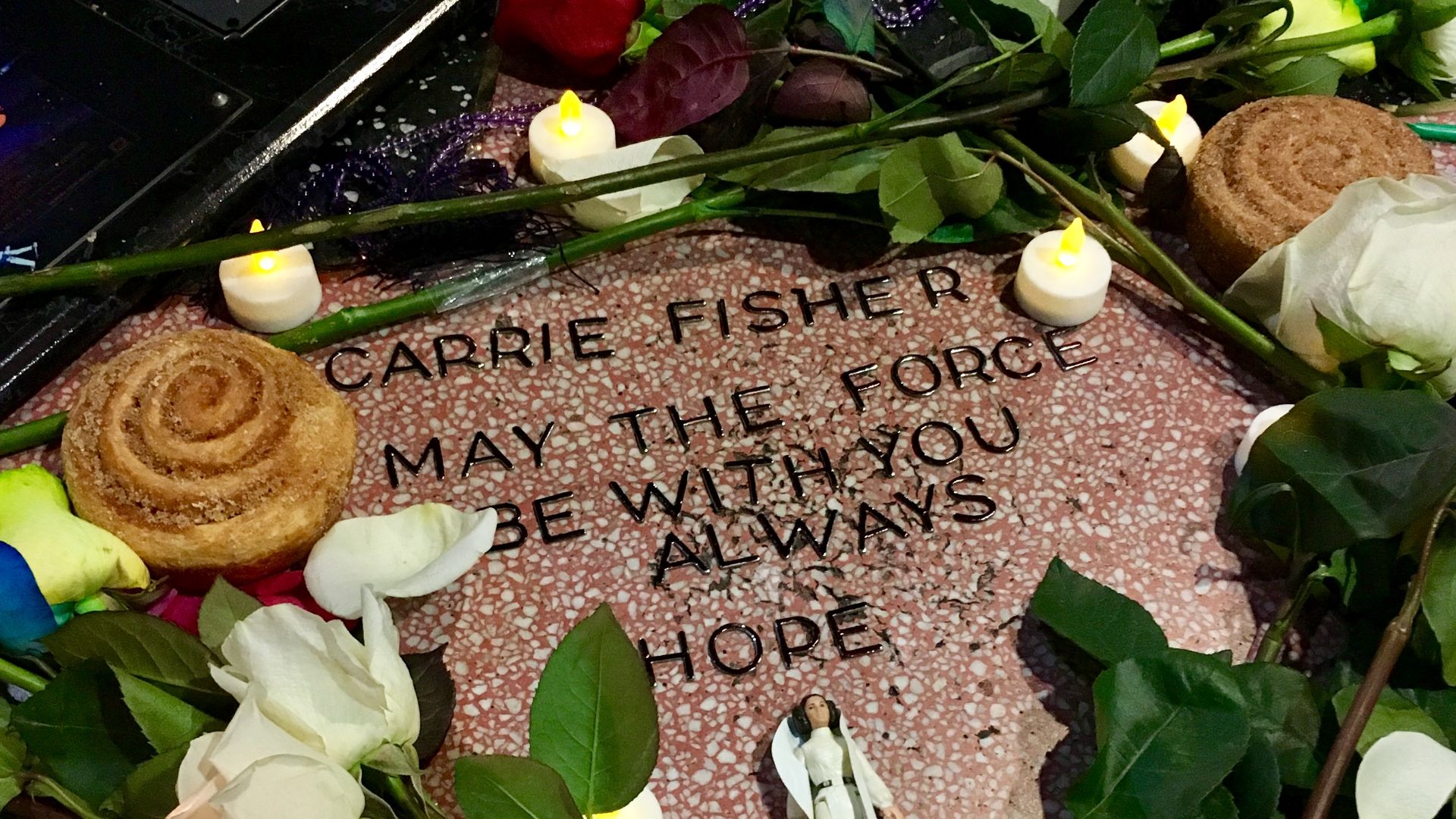 Justin Sewell, Wikimedia Commons
Justin Sewell, Wikimedia Commons
The Cow’s Tongue Story
And of course — the cow’s tongue. When a Hollywood producer harassed Carrie’s friend, she marched to a butcher, bought a cow’s tongue, boxed it up in Tiffany wrapping, and sent it to him with a note: “If you ever touch my friend again, the next delivery will be something of yours.” That’s Carrie — fierce, loyal, and unforgettable.
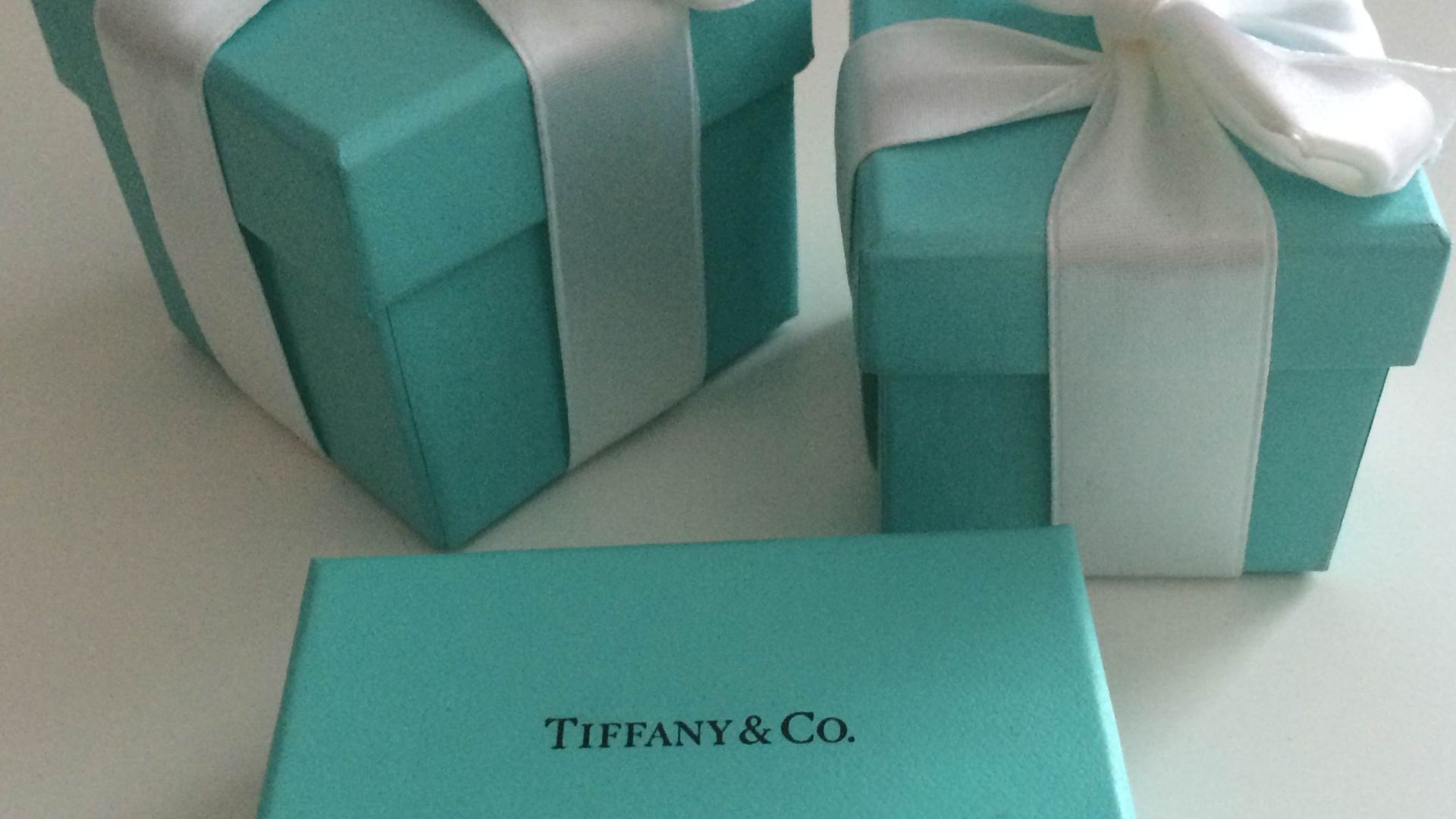 AdrianaGórak, Wikimedia Commons
AdrianaGórak, Wikimedia Commons
You May Also Like:

